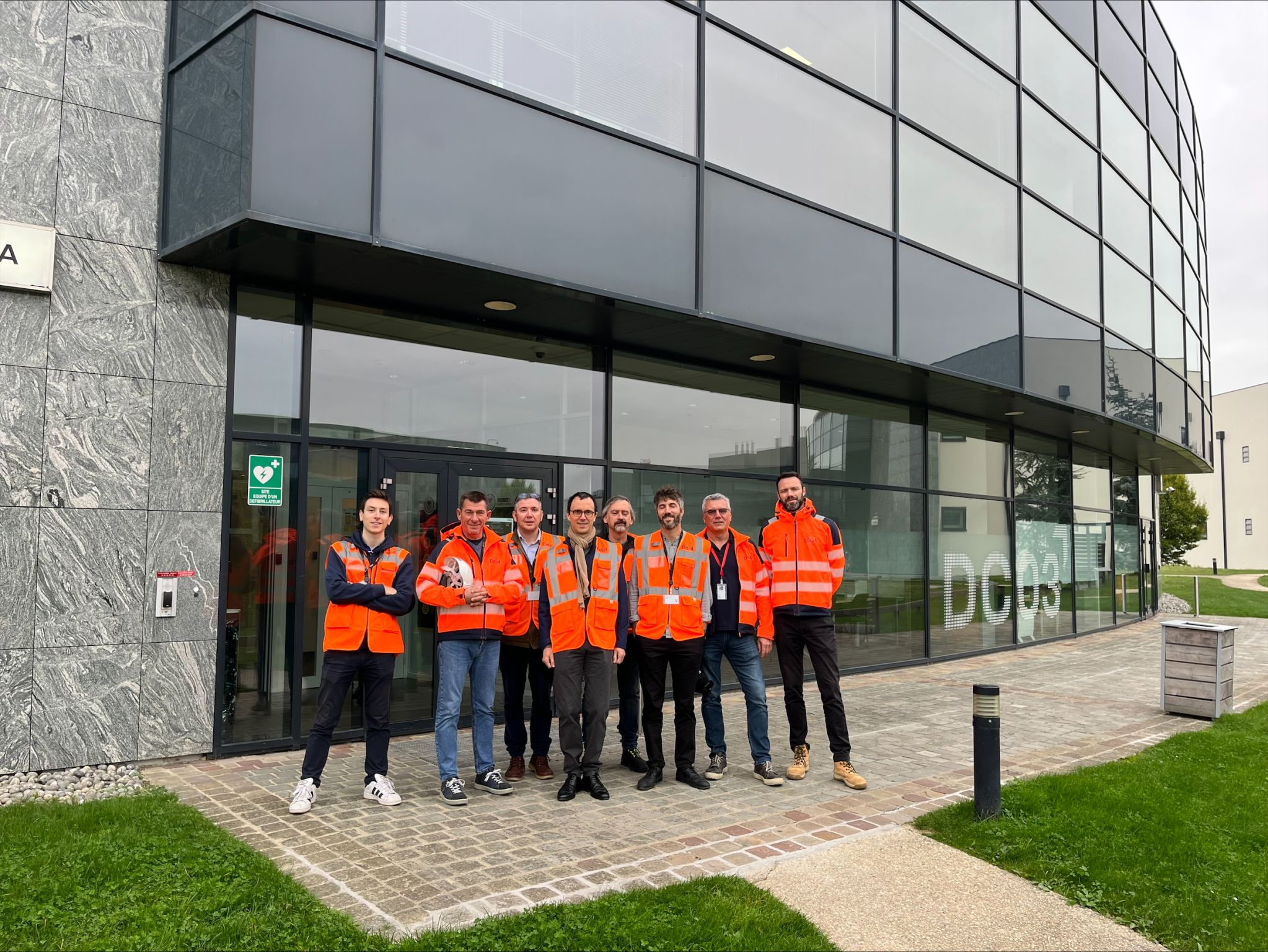
Data centers could account for as much as 4% of electricity consumption in France by 2035, and so ensuring they are fully integrated into the electricity grid is a key challenge for the stability and performance of the energy system.
To achieve this goal, Data4 has joined forces with RTE and Schneider Electric to launch Europe’s first demonstrator project focusing on the interaction between data centers and the electricity grid, located at Data4’s Marcoussis campus in Essonne, France.
Anticipating the digital world’s energy impact
The rapid growth in the use of digital technology and artificial intelligence have led to a significant increase in energy requirements. As a major European player in data centers, energy performance and sustainability are at the heart of Data4’s business model.
The experiments at the Marcoussis campus will help assess data centers’ contribution to grid stability, analysing their behaviour under multiple electrical scenarios, including voltage variations and disruption.
“This project demonstrates Data4’s desire to play an active part in the digital sector’s energy transition. Data centers can and must become positive stakeholders in the electricity grid,” said Olivier Micheli, CEO of Data4.
A global initiative: DCFLEX
The project is part of DCFLEX (Data Center Flexible Load Initiative), an international program launched by the Electric Power Research Institute (EPRI). The initiative brings together more than 45 global digital and energy stakeholders, including Google, Meta, Microsoft and several international grid operators.
Our Marcoussis campus was chosen as the site for the first European demonstrator, highlighting our firm commitment to innovation and energy management within digital infrastructure.
Trialling energy flexibility within data centers
The aim of the project is to test data centers’ ability to adapt to grid conditions, particularly during adverse events or voltage variations.
As part of the tests, digital twins – virtual copies of key infrastructure – will be created to simulate and analyse multiple scenarios in real-life conditions.
The experiments will help drive progress in technical connection standards and bolster the European electricity grid’s resilience while paving the way for new energy flexibility models.
A partnership serving digital sustainability and sovereignty
By joining forces with RTE and Schneider Electric, Data4 reaffirms its commitment to a more sustainable, energy-efficient and resilient digital sector. The project represents the group’s strategy in microcosm: developing high-performance, responsible data centers capable of intelligently interacting with their energy environment.
Through this pioneering initiative, Data4 shows that a data center can be a key player in the energy transition, actively contributing to the stability and flexibility of Europe’s electricity grid.

